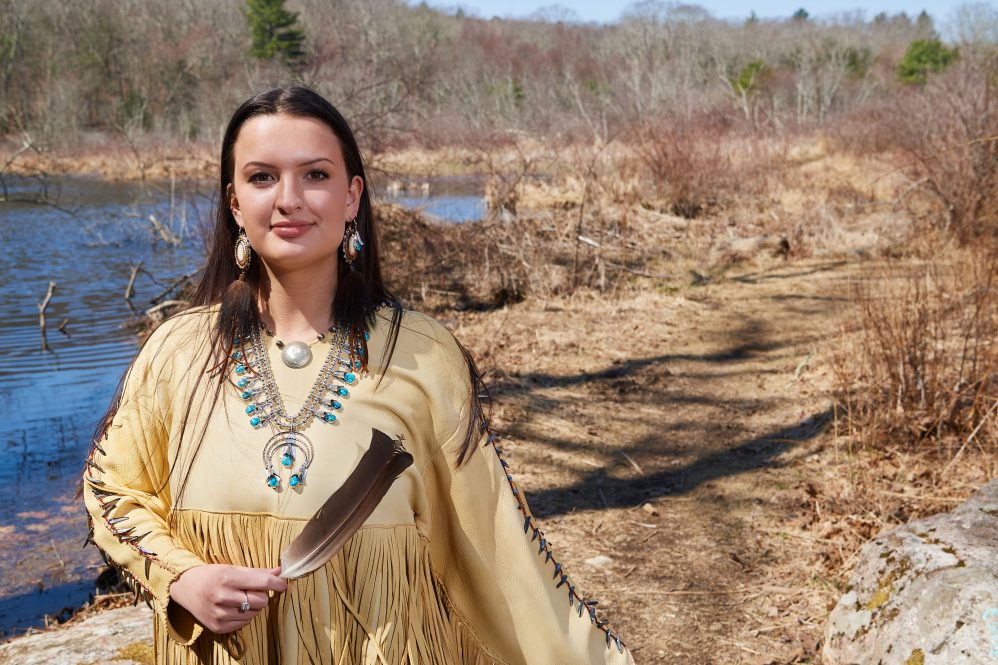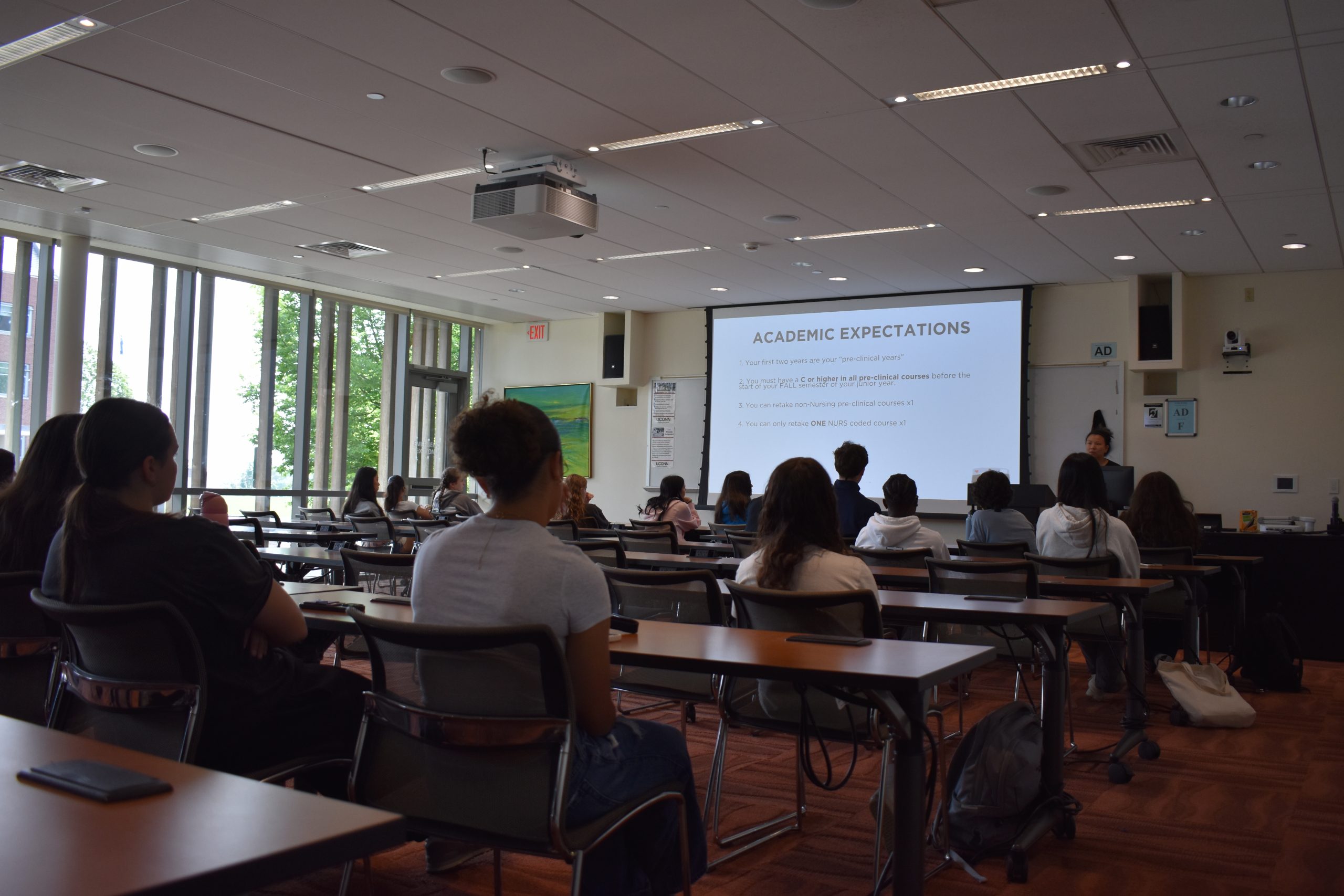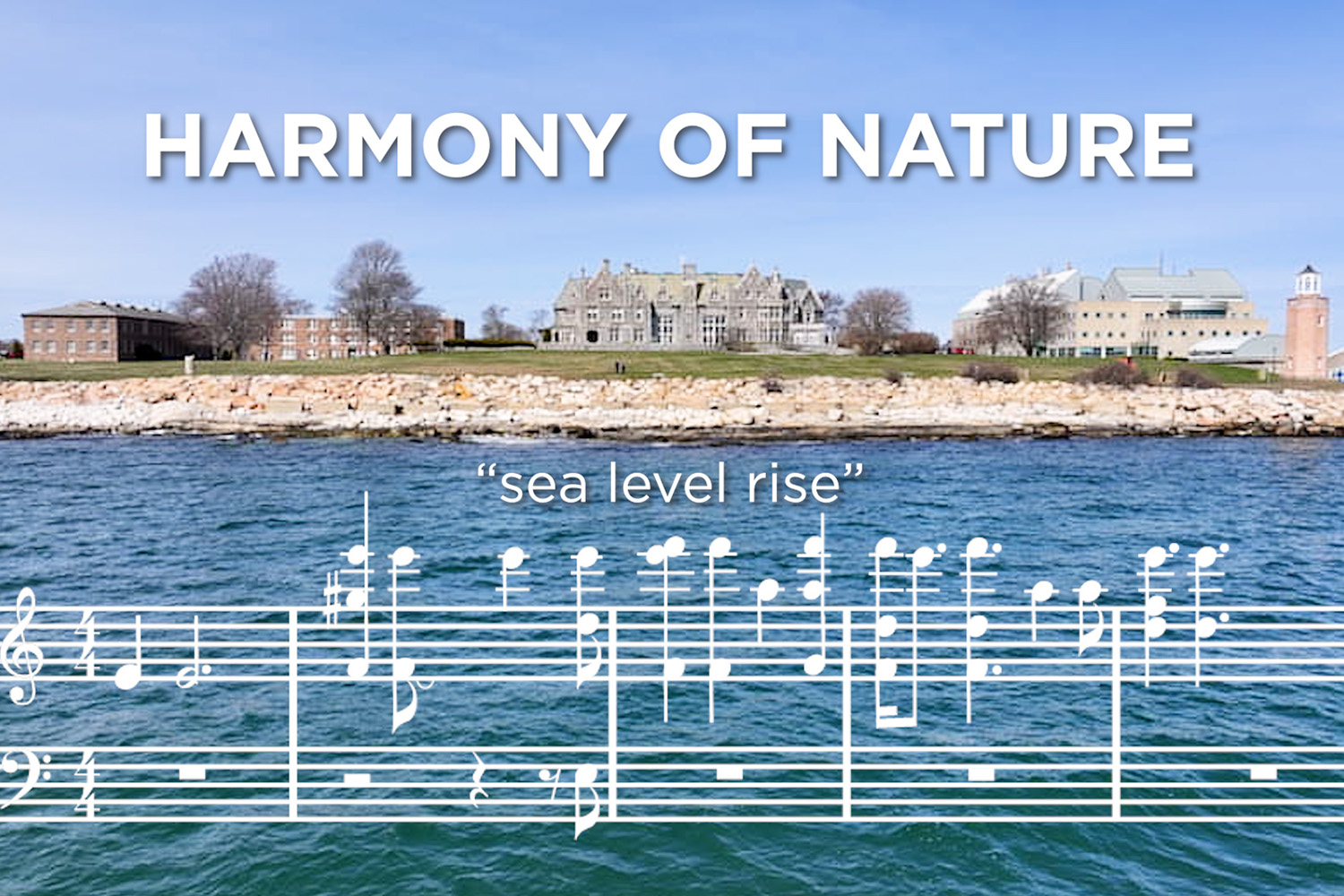Sage Phillips, member of the Penobscot Nation, came to UConn determined to build a strong Native community where Indigenous students could find a place of belonging. In addition to her Political Science & Human Rights degree and minor in Native & Indigenous studies, Phillips has been working tirelessly toward that goal ever since. She says at UConn, you can make it your own and you can make it a home away from home.
Why did you choose UConn?
When I was a senior in high school, I was looking for colleges and universities that had a robust Indigenous community. My entire life, being Penobscot I expected that I would attend the University of Maine on full scholarship and later decided I wanted to be away from home when I pursued higher education. As I was searching New England seeking a school with my only requirement, UConn was not an institution that appeared to have a large Indigenous community awaiting my arrival. As it turned out, there was virtually no community at all.
My mother kept mentioning UConn to which I quickly dismissed. It was my father who said, “You know what you want in a strong Native community, why not go build it?” Those words from my father led me to commit to UConn having never visited, and in the Fall of 2018, I set out to do exactly what he suggested. Today, I could not imagine attending a different university than UConn.
What’s your major and why did you choose it?
I am a double major in Political Science and Human Rights with a minor in Native & Indigenous Studies. I came to UConn as a Sociology major and quickly realized it was not the right fit for me. Knowing this, I began to attend events around campus that gave me insight into what other majors had to offer. In doing this, I found Political Science and immediately enrolled for my second semester freshman year. As I began my course work, I realized I wanted more of a human rights focus and insight into the topics we were discussing in my classes. As I learned with the Human Rights major was about, there was no doubt in my mind that this is where I needed to be. Given my identity as a Penobscot student, I also added the Native & Indigenous studies minor to broaden my understanding of Indigenous cultures all over the world.
What are your plans after graduation?
During the duration of my academic career, I decided that I will eventually be attending law school to further my knowledge and commitment to equitable solutions for Indigenous youth seeking higher education. Currently, I will be taking at least one gap year to gain some experience in areas that will help further my future career and goals.
In 2021, I was fortunate and honored to receive the Harry S. Truman Scholarship which will host 2021 scholars this upcoming summer after graduation for the Truman Summer Institute (TSI). I will be interning with Council for Opportunity in Education for most of the summer and hope to start working full time (though I am not currently sure where) after TSI concludes.
What activities were you involved with as a student?
At the end of my freshman year, I was hired to work for the Native American Cultural Programs, which has opened every door for involvement opportunities that I have been able to participate in. To name a few, I have sat on the President’s Council for Race and Diversity under former university President Thomas Katsouleas, I participated in the 2020 Leadership Legacy Experience, I received a grant that resulted in a research effort called LandGrabCT.org, and I founded the Native American and Indigenous Students Association. I am forever grateful to NACP for every opportunity that I have been presented with.
How has UConn prepared you for the next chapter in life?
UConn has allowed me to flourish in ways that I did not think were possible. I arrived at UConn trying to find my purpose as an Indigenous person, and through my advocacy work I was able to reclaim my indigeneity. This work has also required me to participate in hard conversations across many spaces within the university, which transformed me into the leader I am today. UConn’s vast number of opportunities has allowed me to find my focus in my academics, essentially force me to use my voice to create lasting institutional change, and has helped foster relationships across faculty, staff, students, and alumni that will last a lifetime.
What’s one thing that surprised you about UConn?
As a prospective student, UConn is a big school. Coming from Maine, I did not know anyone when I arrived. The more I got involved the more people I came to recognize in many of the spaces I was in, which really shocked me. I quickly realized that people are connected to many different places across campus, and because of this, UConn became my second home.
Any advice for incoming first-year students?
I came to UConn from a place where I did not feel my background was accepted. As an Indigenous student, prior to UConn I have always been a bit hesitant to express my indigeneity as I did not always feel comfortable doing so. In my four years at the university, I have shed every expectation that I perceived those around me to have of myself, which allowed me to truly embrace who I was and bring me happiness and success. My biggest piece of advice to incoming students is to embrace who you are to the fullest, no matter what.
What’s one thing every student should do during their time at UConn?
Get involved! It does not matter how different you feel your interests may be, UConn has something for everyone! I cannot imagine my time at UConn without being involved in a student organization.
Who was your favorite professor and why?
My favorite professor was Sandy Grande. As an Indigenous student, I am a strong advocate the representation is key whether it be inside or outside of the classroom. Professor Grande came to UConn as part of our Indigenous faculty cluster hire and I feel very fortunate to have had the opportunity to take two of her classes in my time at UConn!
What’s one thing that will always make you think of UConn?
Something that I will always remember UConn by is the mentorship I have received in my time here. I have had so many amazing faculty and alumni mentors that have shaped who I am today. These are the people that helped me receive scholarships, helped get me involved around campus and overall uplifted me during my whole undergraduate career. I can’t thank them enough!



